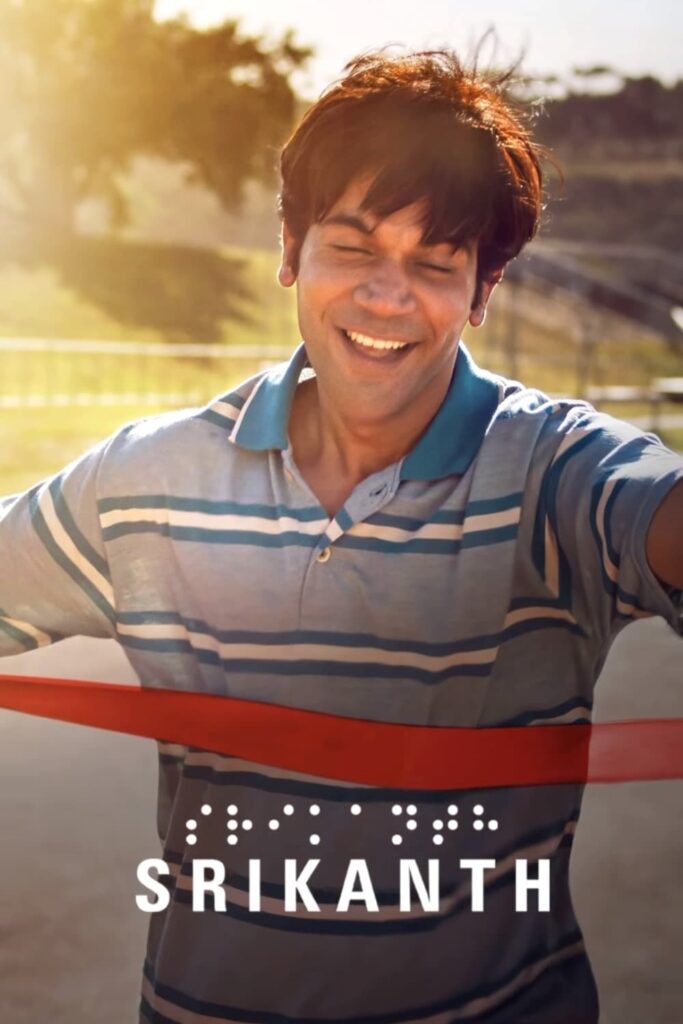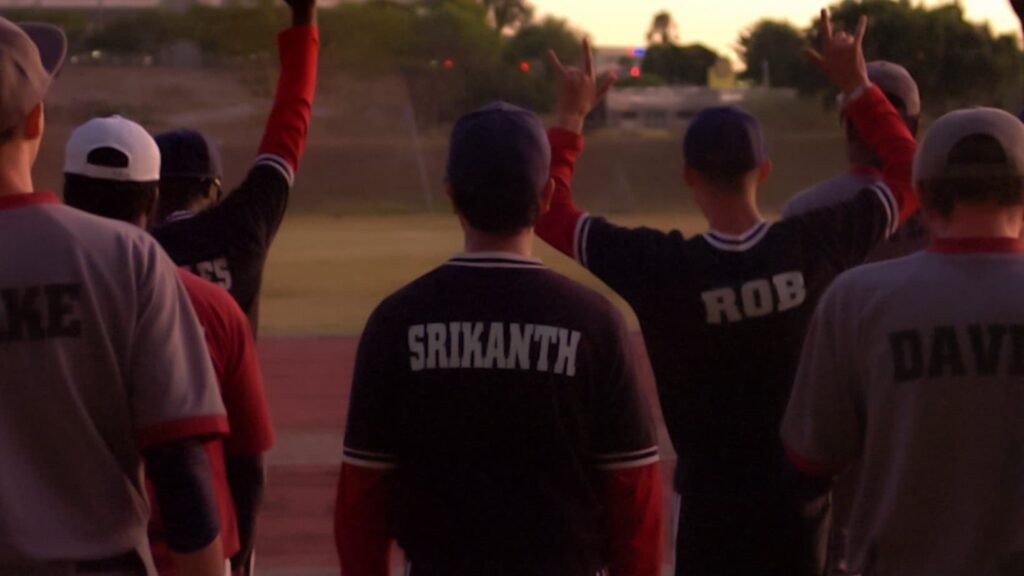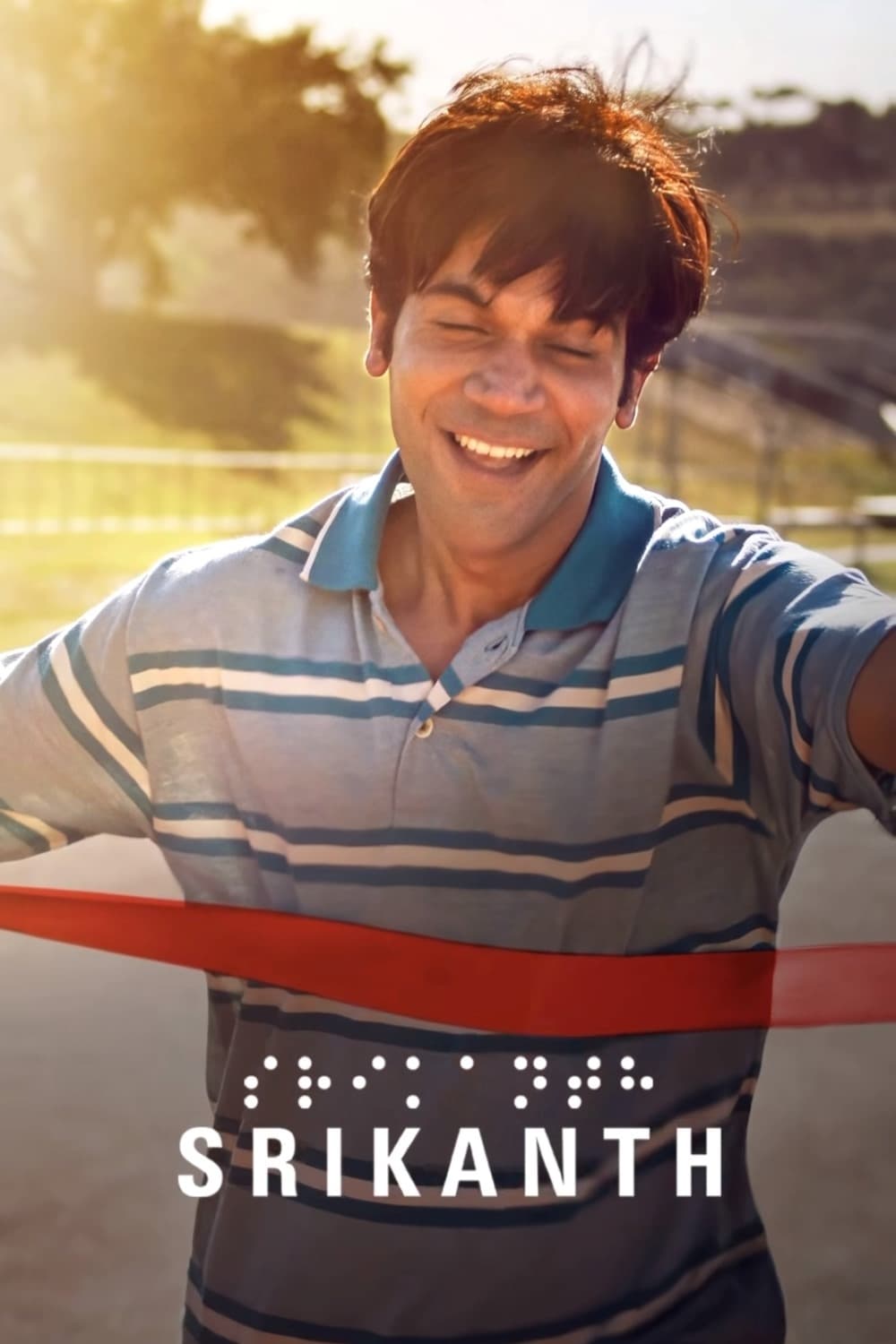The 2024 biographical Indian Hindi film Srikanth tells the story of the visually handicapped businessman and founder of Bollant Industries, Srikanth Bolla. Under the direction of Tushar Hiranandani, Rajkummar Rao plays the title character alongside Jyothika, Alaya F, and Sharad Kelkar. From November 2022 to January 2023, filming was conducted. On the occasion of Akshay Tritiya, on May 10, 2024, Srikanth was released in theaters. He had originally been scheduled for a September 2023 release.

Srikanth narrates the tale of the visually challenged self-made billionaire, Srikanth Bolla, and his incredible rise from a destitute Andhra town to become one of India’s most prominent industrialists.
The plot, despite the customary disclaimer of creative liberties, is as true to real life as can be found in a feature film: the joy of the father (Srinivas Beesetty) turning to dismay as he holds his sightless newborn in his arms; his mother’s (Anusha Nuthul) desperate pleas for his life; the bullying in the local school; his brilliance shining through; his admission to MIT after IIT turns him down; his return to India; and his following the path less traveled that leads him into the kind of unbelievable sunshine that most people, let alone those with disabilities, can only dream about.
Without a doubt, Tushar Hiranandani has selected an excellent topic. Even with the rise in awareness and advocacy, it still takes courage to center a disabled person in a picture, particularly in this day and age when theater releases are ending in the hundreds. It goes without saying that Rajkummar Rao, who is portraying Srikanth Bolla, possesses both expertise and the highest sincerity. A 2.5-hour film that touches on the high points of a challenging life tends to use broad brushstrokes, which removes intricacy and leaves the story telling largely simple.
Does Srikanth’s portrayal look authentic? This is essential for our belief. Rao wins on that point, however his eyebrow wiggle in the second half of the movie, which also gets drier, did divert my attention. Being able to totally embody a part and, more importantly, letting go of all vanity is something that only Rao can do. When Srikanth Bolla smiles and repeats his mantra, Sri Can, you can’t help but smile back.
Jyotika makes a convincing impression as Srikanth’s rock, the instructor who sticks by him when all seems lost. Alaya F enters the picture as the young lady who is drawn to this man who pursues his goals no matter what, and she immediately gives the movie some glitz. You hope she gets a more prominent role—who is this girl? As a devoted friend who never deserts Srikanth, even when the latter grows arrogant and begins to exert influence, Sharad Kelkar is dependable as ever.

The virtue of this movie is its dispensing with the notion that disabled persons must be “noble” and “good”: Rao shows us that people with significant disabilities are, at the end of the day, also people by portraying him as resentful and overly intelligent for his own good. They may also act inappropriately. It would have given the movie a much-needed interiority if there had been more attention paid to this aspect of Srikanth, whose efforts in real life have had a lasting influence on blind students who choose to pursue the sciences.
And then are the message-y parts, heavy on dialogue, laden with life lessons, which come thick and fast. While Srikanth’s climactic speech telling us what we must and must not do when faced with people with disabilities is effective, it is also a lazy device, which makes the movie more tell, than, well, show. Plus, my biggest bugbear, the background music, is so blaringly loud, especially when the film kicks into gear, that it drowns even the dialogue. Why, why can’t filmmakers trust us to feel those feelings ourselves?
Still, I’ll choose “Srikanth” in spite of its shortcomings. The reason for this is that it chooses to tell the story of someone who refused to be called a bechara—no standing on the street and begging for money or “making candles”—and instead honors a person who rose above a literal hole in the ground where he was going to be buried alive and went on to create a career for himself and countless others. Because it discusses barbabari rather than bechargi, it is both effective and sounds like a dialogue.
You are shocked and burst out laughing as Srikanth adds, “hamaare chakkar mein mat padna, bech ke kha jayenge.” You can tell right away that this is a man who has realized that dwelling on his shortcomings is not productive, that he is appreciative of the help he received to get to a place where he can fully utilize his natural talents, and that he is a winner. And winners are loved by all, right?




